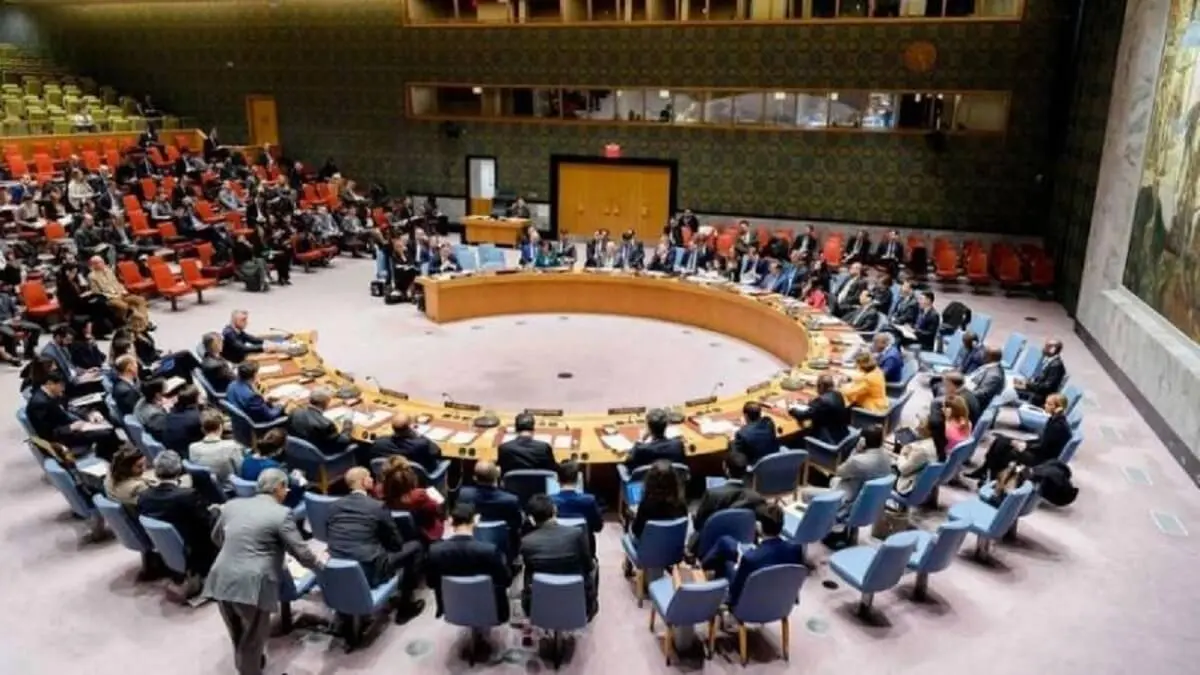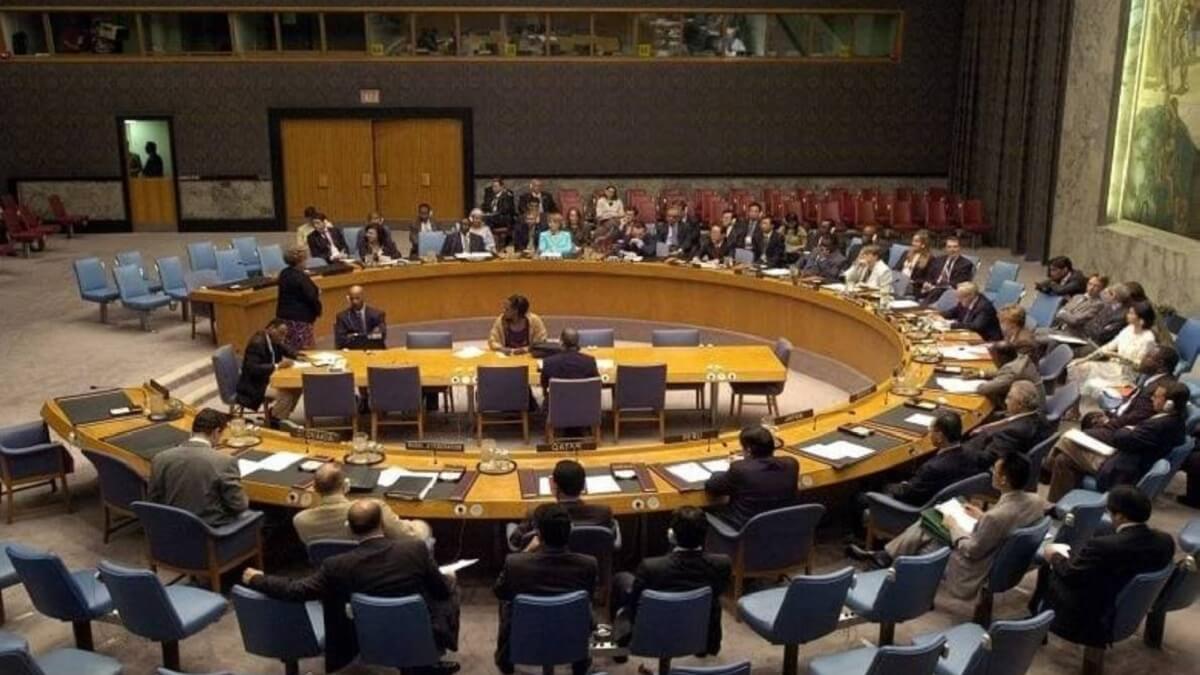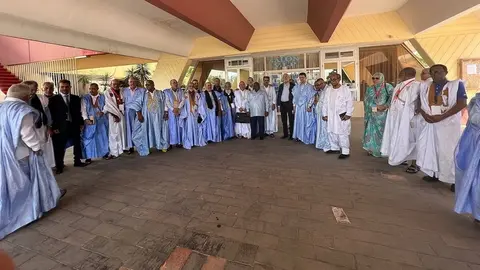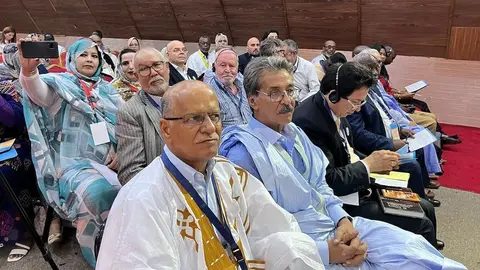UN reaffirms again its approval of Morocco's serious and credible efforts on Western Sahara

The United Nations (UN) extended the United Nations Mission for the Referendum in Western Sahara (MINURSO) for another year, positively recognising Morocco's efforts on the issue and giving its approval to the pre-eminence of Morocco's proposal for the Saharawi territory.
Morocco proposes a formula of broad autonomy for Western Sahara under Moroccan sovereignty while respecting UN resolutions as a solution to the Saharawi dispute. This version is the one that has received the most international support, including that of very important nations such as the United States, Germany, the United Arab Emirates, Israel and Spain, which consider this initiative to be the most serious, credible and realistic way of resolving the Sahrawi sovereignty problem, which has lasted for more than four decades.
The UN Security Council once again confirmed the relevance of the Moroccan formula and welcomed the efforts of the Moroccan kingdom after extending MINURSO's mandate for another year.
The Security Council thus decided to "extend the mandate of MINURSO until 31 October 2024", as stated in the US-sponsored resolution 2703. The resolution was adopted with 13 votes in favour and two abstentions.

In this new resolution, the UN executive body reaffirmed its support for the Moroccan autonomy initiative, presented by Morocco in 2007, as a serious and credible basis for ending the regional dispute over the Moroccan Sahara, as respected in Security Council resolutions.
The Security Council welcomed the momentum created by the first roundtable on 5-6 December 2018 and the second roundtable on 21-22 March 2019, and the engagement of Morocco, the Polisario Front, Algeria and Mauritania in the UN political process on Western Sahara in a serious and respectful manner to identify elements of convergence.
The members of the UN Security Council also appreciated the efforts of the UN Secretary General's Personal Envoy for Western Sahara, Staffan de Mistura, who is working in depth to ensure that there is a solid political dialogue between the parties involved in order to arrive at a realistic and pragmatic solution to the Sahara dispute. Reaffirming its commitment to assist the parties to achieve a just, lasting and mutually acceptable political solution, involving the parties concerned: Morocco, Algeria, the Polisario Front, Mauritania and the list of so-called friendly countries, which includes nations such as Spain and France.

The UN Security Council reiterated its call on Morocco, the Polisario Front, Algeria and Mauritania "to cooperate more fully with each other, including through confidence-building, and with the United Nations, as well as to strengthen their engagement in the political process and achieve progress towards a political solution".
The UN also welcomed "serious and credible Moroccan efforts to move the process forward towards a resolution". It strongly reiterated its call for the registration of refugees in the Tindouf refugee camps as an essential element for progress in negotiations to improve the quality of life of the people of Western Sahara in all its aspects. In fact, several sectors denounce the difficult living conditions of the Sahrawi refugees in the Tindouf camps, which depend on the Polisario Front and for which the Algerian state should have greater responsibility as they are on its own territory.

Full text of Security Council Resolution 2703:
Adopted by the Security Council on 30 October 2023
The Security Council,
PP1. Recalling and reaffirming all its previous resolutions on Western Sahara,
PP2. Reaffirming its strong support for the efforts of the Secretary-General and his Personal Envoy to implement resolutions 1754 (2007), 1783 (2007), 1813 (2008), 1871 (2009), 1920 (2010), 1979 (2011), 2044 (2012), 2099 (2013), 2152 (2014), 2218 (2015), 2285 (2016), 2351 (2017), 2414 (2018), 2440 (2018), 2468 (2019), 2494 (2019), 2548 (2020), 2602 (2021) y 2654 (2022),
PP3. Expressing its full support for Staffan de Mistura, the Secretary-General's Personal Envoy for Western Sahara, and his efforts to move the political process forward, building on the progress made by the previous Personal Envoy and in accordance with relevant precedents; and welcoming the visits made by the Personal Envoy in this regard to the region,
PP4. Welcoming the momentum created by the first roundtable on 5-6 December 2018 and the second roundtable on 21-22 March 2019, and the engagement of Morocco, the Polisario Front, Algeria and Mauritania in the UN political process on Western Sahara in a serious and respectful manner to identify elements of convergence; and recalling the important contributions of the former Personal Envoy of the Secretary-General for Western Sahara in the conduct of the Round Table process, and further welcoming the convening by the current Personal Envoy of informal consultations with Morocco, the Polisario Front, Algeria and Mauritania, as well as France, the Russian Federation, Spain, the United Kingdom and the United States, at UN Headquarters from 27 to 31 March 2023,
PP5. Encouraging the continuation of consultations between the Personal Envoy and Morocco, the POLISARIO Front, Algeria and Mauritania in this regard to build on the progress achieved,
PP6. Reaffirming its commitment to assist the parties to achieve a just, lasting and mutually acceptable political solution, based on compromise, which will provide for the self-determination of the people of Western Sahara in the context of arrangements consistent with the principles and purposes of the Charter of the United Nations, and taking note of the role and responsibilities of the parties in this regard,
PP7. Reiterating its call on Morocco, the Polisario Front, Algeria and Mauritania to cooperate more fully with each other, including through confidence building, and with the UN, as well as to strengthen their engagement in the political process and to achieve progress towards a political solution,
PP8. Recognising that achieving a political solution to this long-standing dispute and enhanced cooperation among the Member States of the Maghreb Arab Union would contribute to stability and security, which in turn would generate jobs, growth and opportunities for all the peoples of the Sahel region,
PP9. Welcoming the Secretary General's efforts to keep under close review all peacekeeping operations, including the UN Mission for the Referendum in Western Sahara (MINURSO), and reiterating the need for a rigorous and strategic approach by the Council to peacekeeping deployments, and effective management of resources,
PP10. Recalling resolution 2378 (2017) and its request by the Secretary-General to ensure that data related to the effectiveness of peacekeeping operations, including data on the performance of peacekeeping operations, is used to improve the analysis and evaluation of mission operations, based on clear and well-identified benchmarks, and further recalling resolution 2436 (2018) and its request of the Secretary-General to ensure that decisions to recognise and incentivise outstanding performance and decisions regarding deployment, remediation, training, withholding of financial reimbursement and repatriation of uniformed personnel or dismissal of civilian personnel , are based on objective performance data,
PP11. Recalling resolutions 2242 (2015) and 2538 (2020) and its aspiration to increase the number of women in military and police contingents in United Nations peacekeeping operations,
PP12. Recognizing the important role of MINURSO on the ground and the need for it to conduct regular and secure resupply of its team sites, conduct patrols throughout its area of responsibility and fully implement its mandate, including its role in supporting the Personal Envoy to achieve a mutually acceptable political solution, and welcoming the progress made by MINURSO in resupplying its team sites to sustain these crucial operations,",
PP13. Noting with deep concern the breakdown of the cease-fire,
PP14. Expressing concern at the violations of the agreements concluded with the UN and reiterating the importance of full and renewed adherence to these commitments, and taking note of the commitments made by the Polisario Front to the former Personal Envoy,
PP15. Taking note of the Moroccan proposal submitted on 11 April 2007 to the Secretary-General and welcoming the serious and credible Moroccan efforts to move the process forward towards a resolution; Taking note also of the Polisario Front's proposal submitted on 10 April 2007 to the Secretary-General,
PP16. Encouraging in this context the parties to demonstrate greater political will towards a solution, including by broadening the debate on each other's proposals and re-engaging with UN efforts in a spirit of realism and compromise, further encouraging neighbouring countries to make contributions to the political process; and stressing the importance of all stakeholders broadening their positions in order to promote a solution,
PP17. Encouraging the parties to continue to cooperate with the Office of the United Nations High Commissioner for Refugees in identifying and implementing confidence-building measures that can serve to build the trust necessary for a successful political process,
PP18. Stressing the importance of improving the human rights situation in Western Sahara and the Tindouf camps, and encouraging the parties to work with the international community to develop and implement independent and credible measures to ensure full respect for human rights, taking into account their relevant obligations under international law,
PP19. Encouraging the parties to maintain and prioritise their respective efforts to enhance the promotion and protection of human rights in Western Sahara and the Tindouf refugee camps, including freedoms of expression and association,
PP20. Welcoming in this regard the measures and initiatives taken by Morocco and the role played by the National Council of Human Rights Commissions operating in Dakhla and Laayoune, as well as Morocco's interaction with the Special Procedures of the UN Human Rights Council,
PP21. Encouraging improved cooperation with the Office of the UN High Commissioner for Human Rights (OHCHR), including by facilitating visits to the region,
PP22. Noting with deep concern the continuing difficulties faced by the Sahrawi refugees, their dependence on external humanitarian assistance and the impact of the COVID-19 pandemic, and further noting with deep concern the inadequate funding for those living in the Tindouf refugee camps and the risks associated with the reduction of food assistance; and strongly encouraging donors to provide additional funding in view of the deteriorating humanitarian situation and aid agencies to facilitate the provision of humanitarian assistance in accordance with UN best practices,
PP23. Strongly reiterating its call for the registration of refugees in the Tindouf refugee camps and stressing the importance of ongoing efforts in this regard,
PP24. Recalling UN Security Council Resolutions 1325 and 2250 and related resolutions; stressing the importance of a commitment by the parties to continue the process of negotiations through UN-sponsored talks and encouraging the full, equal and meaningful participation of women and the active and meaningful participation of youth in these talks,
PP25. Recognising that the status quo is not acceptable and noting further that progress in the negotiations is essential to improve the quality of life of the people of Western Sahara in all its aspects,
PP26. Affirming its full support for the Special Representative of the Secretary-General for Western Sahara and Head of MINURSO, Alexander Ivanko,
Having considered the report of the Secretary-General of 2 October 2023 (S/2023/729),
OP1. Decides to extend the mandate of MINURSO until 31 October 2024;
OP2. Stresses the need to achieve a realistic, practicable, lasting and mutually acceptable political solution to the question of Western Sahara based on compromise and the importance of aligning MINURSO's strategic approach and directing the resources of the United Nations to this end;
OP3. Expresses its full support for the Secretary-General and his Personal Envoy in facilitating the process of negotiations to achieve a solution to the Western Sahara issue, building on the progress and framework of the previous Personal Envoy, and warmly welcomes the efforts of the current Personal Envoy, including, to this end, the convening of informal consultations from 27 to 31 March 2023, and strongly encourages Morocco, the POLISARIO Front, Algeria and Mauritania to engage with the Personal Envoy throughout this process, in a spirit of realism and compromise, to ensure a successful outcome and commitment, to ensure a successful outcome;
OP4. Calls upon the parties to resume negotiations under the auspices of the Secretary-General without preconditions and in good faith, taking into account the efforts made since 2006 and subsequent developments with a view to achieving a just, lasting and mutually acceptable political solution, which will provide for the self-determination of the people of Western Sahara in the context of arrangements consistent with the principles and purposes of the Charter of the United Nations, and taking note of the role and responsibilities of the parties in this regard;
OP5. Invites Member States to provide appropriate assistance and support to these talks and to the efforts of the Personal Envoy;
OP6. Reaffirms the need to fully respect the military agreements reached with MINURSO regarding the cease-fire and calls on the parties to comply fully with these agreements, to honour their commitments to the former Personal Envoy and to refrain from any action that could undermine the measures facilitated by the United Nations. negotiations or further destabilize the situation in Western Sahara;
OP7. Reiterates its call on all parties to cooperate fully with MINURSO, including its free interaction with all interlocutors, and to take the necessary steps to ensure the security, unhindered movement and immediate access of UN and associated personnel in the performance of their duties. mandate, in accordance with the agreements concluded with the UN;
OP8. Calls for the secure and regular resupply of MINURSO team sites to ensure the sustainability of the Mission's presence;
OP9. Stresses the importance of a renewed commitment by the parties to move the political process forward in preparation for further negotiations, recalls its endorsement of the recommendation contained in the report of 14 April 2008 (S/2008/251) that realism and a spirit of compromise by the parties are essential to achieve progress in the negotiations, encourages neighbouring countries to make important and active contributions to this process; and stresses the importance of all stakeholders broadening their positions to move towards a solution;
OP10. Calls upon the parties to demonstrate political will and work in an atmosphere conducive to dialogue to move the negotiations forward, thus ensuring the implementation of resolutions 1754 (2007), 1783 (2007), 1813 (2008), 1871 (2009), 1920 (2010), 1979 (2011), 2044 (2012), 2099 (2013), 2152 (2014), 2218 (2015), 2285 (2016), 2351 (2017), 2414 (2018), 2440 (2018), 2468 (2019), 2494 (2019), 2548 (2020), 2602 (2021) and 2654 (2022) and the success of the negotiations;
OP11. Requests the Secretary-General to report periodically to the Security Council, and at any time he deems appropriate during the mandate period, to include within six months of the renewal of this mandate and again before its expiry, on the status and progress of these negotiations under his auspices, on the implementation of this resolution, the assessment of MINURSO's operations and the measures taken to address the challenges, expresses its intention to meet to receive and discuss their briefings and, in this regard, further requests the Secretary-General to submit a report on the situation in Western Sahara well before the end of the mandate period;
OP12. Welcomes the initiatives undertaken by the Secretary-General to standardise a culture of performance in UN peacekeeping and reaffirms its support for the development of a comprehensive and integrated performance policy framework that identifies clear performance standards for evaluating all UN civilian and uniformed personnel working and support peacekeeping operations that facilitates the effective and full implementation of mandates, and includes comprehensive and objective methodologies based on clear and well-defined benchmarks to ensure accountability for poor performance and incentives and recognition of outstanding performance, and requests him to implement this framework for MINURSO as outlined in resolution 2436 (2018), and requests the Secretary-General to seek to increase the number of women in MINURSO, as well as to ensure the full, equal and meaningful participation of women in all aspects of operations;
OP13. Urges the parties and neighbouring states to engage productively with MINURSO as it further considers how new technologies can be used to reduce risk, improve force protection and better implement its mandate;
OP14. Encourages the parties to cooperate with the Office of the United Nations High Commissioner for Refugees to identify and implement confidence-building measures, including the participation of women and youth, and encourages neighbouring states to support these efforts;
OP15. Strongly urges Member States to provide new and additional voluntary contributions to fund food programmes to ensure that the humanitarian needs of refugees are adequately addressed and to avoid reductions in food rations; and urges aid agencies to facilitate the delivery of humanitarian aid in accordance with UN best practice;
OP16. Requests the Secretary-General to continue to take the necessary steps to ensure that all MINURSO personnel fully comply with the UN zero-tolerance policy on sexual exploitation and abuse and to keep the Council fully informed through his reports on the progress of the Mission in this regard, and urges troop and police contributing countries to continue to take appropriate preventive measures, including vetting of all personnel, predeployment training and awareness training during the mission, and to ensure full accountability in cases of such conduct involving their personnel through timely investigation of allegations made by troop- and police-contributing countries and MINURSO, as appropriate;
OP17. Decides to remain seized of the matter.










